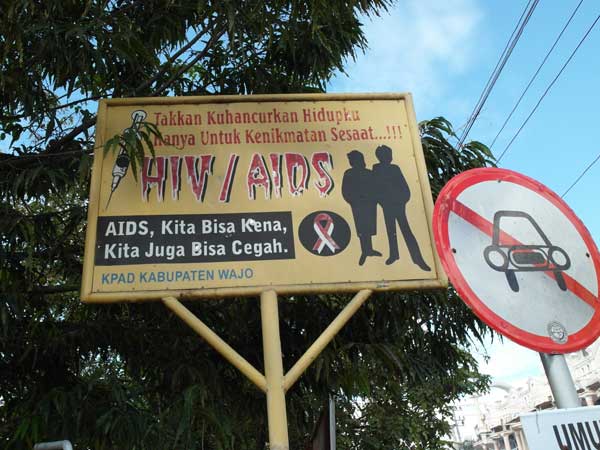Serendip is an independent site partnering with faculty at multiple colleges and universities around the world. Happy exploring!
CPGC Fellowship


The summer after my freshman year I had the privilege of getting a grant from the CPGC to go to Indonesia with Haverford anthropology professors Degung Santikarma and Leslie Dwyer. Together with other students, I participated in a month-long multidisciplinary seminar focusing on social justice and human rights issues in Indonesia, and then conducted my own research project looking at women and HIV/AIDS stigma. Throughout this trip, I was affiliated with both PUSDEP, an institute at Sanata Dharma University that does research on transitional justice efforts in Indonesia, as well as Taman 65, a community-based organization that does peace and reconciliation work pertaining to the 1965 political massacres in Indonesia. That summer was profound for me, because it was the first time that I felt like I had a personal stake in human rights issues – for a long time, the idea of human rights seemed like an abstract discourse that I agreed with and wanted to study, but at the same time was a concept that didn’t necessarily pertain to my own life. The many interpersonal relationships I formed during my first trip to Indonesia were what cemented human rights as being about these many new friends, but also about my own family and social network, as well as myself.
This grounded experience constantly caused me to recall concepts and theories I had previously learned in the classroom, and also shaped my understandings in courses I took following that summer. The concept of transitional justice had been brought up many times in political science courses I’d taken, but it was not until I spent this time in Indonesia that I truly began to understand the importance of reconciliation in concrete way. Rather than being am abstract theoretical concept, reconciliation was about helping a community, which I personally cared for greatly, move forward. What was also remarkable to me is that many of these concepts I had to be taught in a college course were understood intuitively by people much less educated, or even illiterate. This lived experience made it clear to me that I wanted to work promoting social justice in some vein, perhaps by pursuing a career in public health, and also confirmed the fact that I loved to travel and experience new places – but it also raised the somewhat alarming question of whether or not I actually could ever have something to add when going into someone else’s community.


Comments
Post new comment